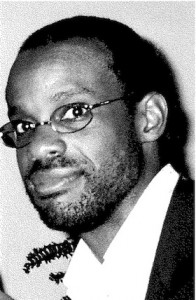Upcoming: Bermuda’s Enslaved Black Capitalists
 The contradictory experiences of Bermuda’s enslaved black capitalists in the 17th and early 18th centuries will be discussed on Tuesday 15th February 2011, as Business Bermuda will host the fourth free luncheon seminar in the series of six.
The contradictory experiences of Bermuda’s enslaved black capitalists in the 17th and early 18th centuries will be discussed on Tuesday 15th February 2011, as Business Bermuda will host the fourth free luncheon seminar in the series of six.
Organized by Business Bermuda’s Local Awareness Committee and held at Conyers Dill & Pearman, the subject of the seminar was chosen by the Committee to celebrate Black History Month.
Dr. Clarence Maxwell is well known to many Bermudians and is visiting the Island just to give this talk. He is presently assistant professor of Caribbean and Latin American History at Millersville University in Lancaster, Pennsylvania, USA. He was formerly employed at the Bermuda Maritime Museum (1999-2005) as Registrar and Director of Historical Research.
Dr. Maxwell’s hour-long talk, which will commence at 12:30 p.m., will address the experiences of Bermuda’s enslaved black capitalists during this period. Within the first decade of colonization in Bermuda (in 1616), populations of African descent developed commercial systems and networks. These systems often competed with those of other communities and by the mid-1600s occurred within the near total enslavement of Bermuda’s black colonizers.
With the maritime commercial revolution and restrictions places on large-scale white male involvement in maritime commerce, this added an international component to the local trading activities of this mostly enslaved community of merchants. The enslaved merchant-mariner arose as an important element within the society of enslaved merchants and each group of merchants embodied a contradictory combination of capitalism (local and overseas commercial and trading activity) and feudalism (what chattel slavery had developed into by 1700).
Cheryl Packwood, CEO, Business Bermuda commented, “I am delighted that Dr. Maxwell has agreed to speak on this topic. I wanted to do something slightly different this month to commemorate black history month yet be in keeping with our business minded mandate. I am initially an historian by training and love this topic in particular. Black people arrived in Bermuda from the very beginning and had commercial businesses. We need to know this information and who better than to discuss this topic but Dr. Maxwell”
Cynthia Wright, Chairman of the Business Bermuda Local Awareness Committee added, “This will be the fourth in our series of six that are planned thus far, and we are very pleased with the reception from everyone. Based on the number of people that have signed up to this event and the following two, we have made the decision to move the seminars to one of Business Bermuda’s members, Conyers Dill who have kindly offered their boardroom to us. There are more details of all the seminars including this one on the Business Bermuda website.”
Read More About
Comments (8)
Trackback URL | Comments RSS Feed
Articles that link to this one:
- Groundbreaking Black History Book Back In Print | Bernews.com | March 5, 2013
- Photos: “Chained On The Rock” Book Launch | Bernews.com | March 5, 2013


Dr Maxwell is more than just “well known” to Bermudians. He is Bermudian!!!
Question is how is it a modern day Bermudian historian is plying is “trade” overseas?
I’m very interested in attending this seminar, as “the near total enslavement of Bermuda’s black colonizers” does not fit within the knowledge I have of that era.
This is really an interesting facet of our history. It would be great if it could become a webinar, CD&P can easily facilitate.
Congratulations to CD&P, Ms. Packwood and Dr. Maxwell.
I would definitely ask the teachers,( if this can be arranged, through the facility of a webinar, even skype ),of history, social study and economics to offer it to interested students over lunch, then engage debate, with Dr. Maxwell, then amongst themselves.
SJS
‘Frank Talk’ is right on the money and well it may be asked why Dr. M. is plying (or had to) his trade overseas.
’cause if you want to be a high level scholar, a professor and a researcher, with access to all the resources that you need to conduct said research – you most likely can’t do it in bermy! you need a big institution, usually a university, to support you in your reseach, and being employed by one opens doors for you to publish and gain access to the materials / sources that you need. the more prestigious the institution, the better off you’ll be for all of that. bermuda probably can’t support a large university on its own, and if we were to take on international students we would have to first answer a lot of logistical questions, ie. where would they be housed (and how would they afford to live here?). millersville has around 8,300 students, and that’s on the smaller side so far as universities are concerned. sure we’ve got our museums, but maybe they can’t support the kind of research this gentleman wants to do, or not so well as a university in the states…
Thank you Dr. Maxwell for eliminating the lie that people were “slaves” before arrival.
This is reminding us that EVERYONE who landed here had roles in their native communities as part of businesses (local and international), construction, education, agriculture, food services, hospitality, politics, health care, mathematical science (accounting), and public works. After landing here they naturally would want to continue engaging in their livelihood. He will show that this was placed into practice and embraced until deemed illegal.
This will go far in reducing the negative images but will be difficult to accept by many. Let’s encourage more reading of history from the other countries’ authors and perspectives!